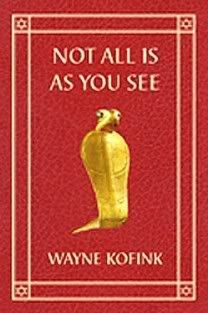John Adams
ciciation

I just finished reading John Adams by David McCullough. It's a very well-written book as to be expected from McCullogh. The focus is on John Adams' part in the American revolution and his relationship with his wife Abigail. I don't recall the American history courses I took making much of John Adams except for his unfortunate support as president for the Alien and Sedition Acts and for his defeat by Thomas Jefferson in the 1800 presidential election. If McCullogh is right, Adams was the driving force behind the Declaration of Independence even if the writing of it was done by Thomas Jefferson. Certainly Adams' diplomatic work as minister to France during the Revolution made a significant contribution to our being a nation at all.
I am always impressed at the quality of the men who had the vision and determination to found our country. None of them were professional politicians, but principled men with some over-arching view of society and what the role of government should be.
One new thing I learned about Adams was that he authored the first constitution for he Commonwealth of Massachusetts. It contained some of the provisions to guarantee people's rights that would be lacking in the United States Constitution, for example, liberty of the press, freedom of speaking (which the delegates would remove), protection against unreasonable searches and seizures, trial by jury. The most amazing aspect of this constitution was the provision that it was the duty of government to spread opportunities for education, cherish literature and science, inculcate principals of humanity and general benevolence. I find this striking because Adams had a generally conservative view of government, but today's conservatives would have fits at this provision. In my community we have politicians that work tirelessly to gut the library and reduce education to the bare essentials.
Another interesting aspect is Adam's statement (lifted from George Mason's Virginia Declaration of Rights) that all people are born "equally free and independent." This was changed by the delegates to read "free and equal." Adams was dismayed by the change because he believed that all people had equal rights under law, but not that they were all equal. I suppose that point of view would garner a lot of protest today from both sides of the political spectrum, but I think it is essentially right. All people are not the same in their abilities and attitudes and no amount of legislation can change that. On the other hand everyone deserves to protected equally by the law.
Equality of rights has been hard to put into practice in the U. S. A slave did not have equal rights, and even after emancipation people of color did not have equal rights. Women did not have equal rights either. Still we have the frightening attitude in our country that rights are awarded or withheld by the government at will rather than something that belongs to people naturally. For example, our government seems to think that it can detain people anywhere in the world, throw them into prison indefinitely, and as long as they don't touch American soil, they have no rights. Even within the country we have arrested people and held them without charges and without access to an attorney or even allowing them to contact their family.
While equality of rights under the law is essential for a society, it is not necessarily helpful to regard all people as equal in every respect. Take for example the simple fact that some people are willing to work harder and longer than others. Should everyone be paid the same? That's what communism tried to advocate, but it was a miserable failure. Nobody is going to work harder than another if there is no benefit to be gained from doing so. On the other hand, shouldn't there be a basic fairness so that people who do work hard are paid enough to live with all the necessities of life--food, shelter, health care, etc. Shouldn't the people who spend 10 hours a day picking fruit at least be able to afford buying it?
The troublesome aspect to this natural inequality is that some of it stems from differences beyond the control of the individual. People who come from well-to-do families will have advantages that others do not. We have tried to mitigate this difference in our country by using education as a way to provide equal opportunity. I think on the whole this has been successful, but not entirely. For decades now people have been coming out of our educational system without the necessary skills. We have far too many drop outs and far too many people who graduate without adequate reading skills. This is witnessed by the appalling number of people who must take remedial courses in community colleges. I know from teaching some such students that they simply are not ready for college-level work and are often indignant when told so. My goodness, we are doing them no favors by throwing them into classes before they can write a coherent paragraph.
I haven't given up on schools entirely, but they aren't enough. We've come to depend on them to do everything for the young people from dealing with social problems to feeding them. The whole community needs to take a deeper interest in its young people so they can have a chance. We can defend equality of rights and work to balance the natural inequality of people by doing everything in our power to give people equal opportunity. We can't determine what path each person will travel in life, but we can help them get started on one.
And may the Lord God bless you on your way and greet you on your arrival.
Wayne
Labels: education, equality, John Adams, rights






